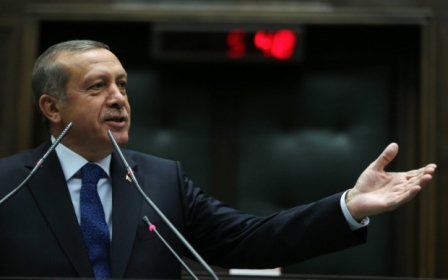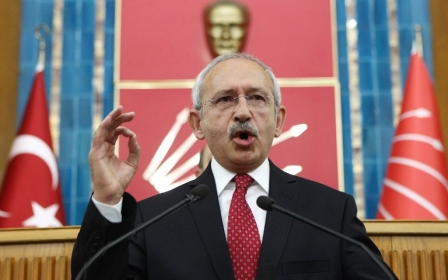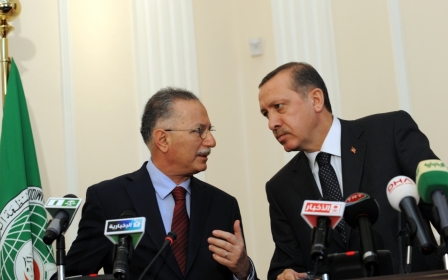Turkey's pro-Kurdish party announces presidential candidate

Turkey's main pro-Kurdish party on Monday announced it was nominating Selahattin Demirtas, the party's co-chair, as its candidate for the presidential election in August to challenge Prime Minister Recep Tayyip Erdogan.
The 10 August vote is shaping up as a two-horse race between Erdogan and opposition candidate Ekmeleddin Ihsanoglu, nominee of the secular CHP and MHP parties.
But the performance of Demirtas could be important in determining if the ballot goes to a second round two weeks later.
"It is time to begin our campaign my friends. Let us pave the way to the presidency," the 41-year-old Kurd told supporters after he was nominated by his People's Democratic Party (HDP).
"We will carry the torch of the struggle for peace," he added.
Demirtas, a lawyer, was this month elected co-chair of the People's Democratic Party (HDP), which enjoys strong popularity in Turkey's predominantly Kurdish southeast.
The Kurds, a distinct Sunni Muslim people, make up an estimated 20 percent of Turkey's 76 million strong population, or around 15 million people.
Erdogan is widely expected to be unveiled Tuesday as the candidate for the ruling Justice and Development Party (AKP), and support from the Kurdish minority could carry him towards a near certain victory.
Demirtas is expected to struggle to break into double figures on polling day with many Kurds still likely to vote for Erdogan.
The HDP candidate - a relatively youthful and dynamic figure - may also win a limited amount of support from non-Kurdish voters.
While the Kurds are an important constituency whose support will be key in determining the victory of one presidential candidate over the other, Demirtas is not however likely to win enough votes to seriously challenge the two main candidates.
A candidate needs more than 50 percent of the vote to be elected in the first round. If none of the three expected candidates receives the required percentage, there will be a second vote on 24 August between the two candidates who receive the most votes.
The Kurdish constituency is therefore expected to play a decisive role in the victory of either Erdogan or Ihsanoglu in the second round of the elections.
Erdogan has long been aware of the Kurdish minorities importance can has taken varied measures to win their support for AKP.
Last week the AKP presented a set of reforms to parliament aimed at giving a major boost to the stalled peace process between the state and Kurdish rebels.
The reforms - granting legal protection to key players involved in peace negotiations - were seen as a government gambit to guarantee Erdogan's presidency.
But analysts believe the HDP could back Erdogan in any second round run-off scheduled for 24 August against Ihsanoglu.
Erdogan is Turkey's first leader to engage in talks with Kurdish rebels and give the Kurds limited extra rights including allowing Kurdish-language education in private schools. But these reforms have failed to grant Kurds any constitutional recognition.
The vote will mark the first time that Turkey’s president has been elected by direct popular vote.
New MEE newsletter: Jerusalem Dispatch
Sign up to get the latest insights and analysis on Israel-Palestine, alongside Turkey Unpacked and other MEE newsletters
Middle East Eye delivers independent and unrivalled coverage and analysis of the Middle East, North Africa and beyond. To learn more about republishing this content and the associated fees, please fill out this form. More about MEE can be found here.




